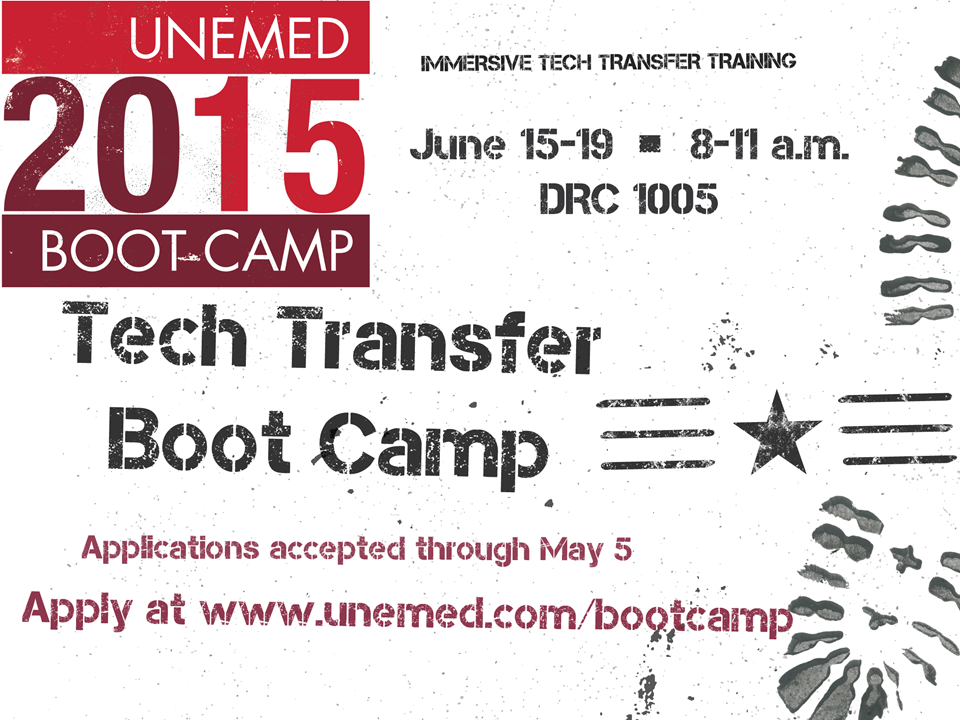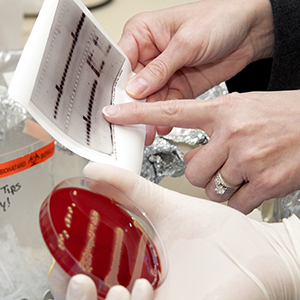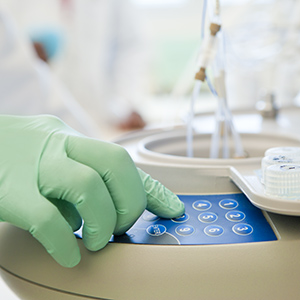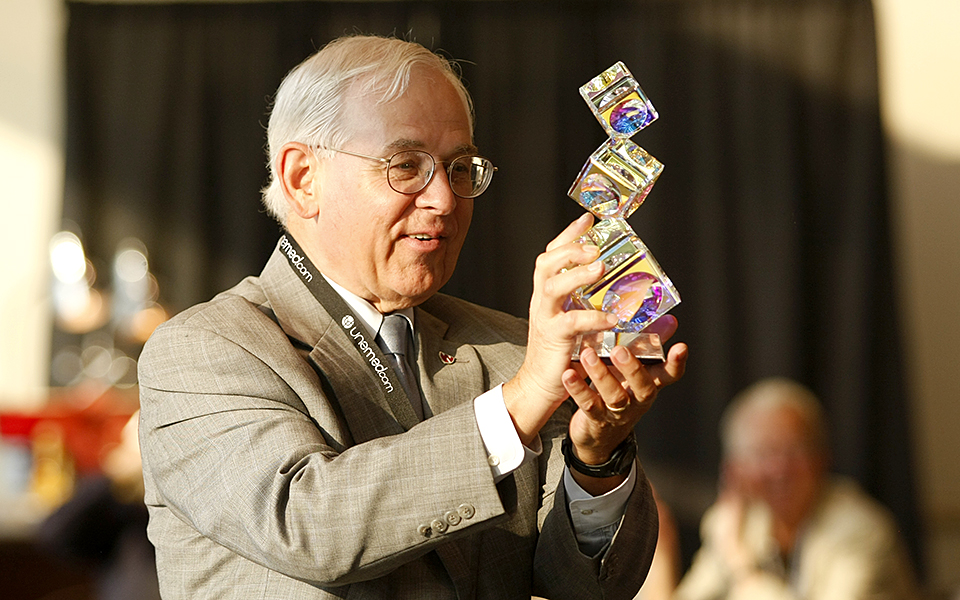
Don Leuenberger, UNeMed’s Chair of the Board, raises a special gift he received in recognition of 24-years of dedicated service since UNeMed was founded in 1991.
OMAHA, Neb. (Aug. 5, 2015)—During its annual Shareholder Meeting last week, UNeMed Corporation announced four new strategic initiatives that officials expect will help expand the scope and productivity of research commercialization across the University of Nebraska Medical Center campus.
Highlighted by a keynote address from UNMC Chancellor Jeffrey Gold, M.D.—and a special award presented to UNeMed Board Chair Don Leuenberger for 24 years of service—the meeting was an invitation-only event at TD Ameritrade Park in downtown Omaha.
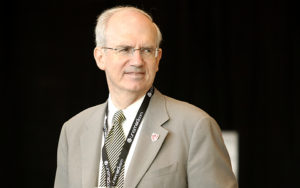
UNMC Chancellor UNMC Chancellor Jeffrey P. Gold, M.D., delivered the keynote, telling onlookers that UNeMed “provides the glide path” for innovations to develop into products that “changes people’s lives.”
Chancellor Gold told the gathering of select University leaders, researchers and UNeMed staff that UNMC’s innovative researchers all share the same goal of improving lives. But that research can’t get there by itself.
“UNeMed is an incredible organization that provides the infrastructure, provides the glide path…and turns it into intellectual property that changes people’s lives,” Gold said.
UNeMed, the technology transfer and commercialization office for UNMC, also reported key metrics from the previous fiscal year.
UNeMed president and CEO Michael Dixon told the crowd that UNMC’s invention pipeline continues to thrive with 63 new invention disclosures filed in fiscal 2014. In the last five years, UNMC researchers developed 412 inventions—compared to the 291 filed during the previous five years.
Dixon also announced a 40 percent increase in total revenue, the fourth-highest in UNeMed’s 24-year history. The $1.11 million UNeMed secured in sponsored research funding was a 69 percent improvement over the previous year, nearly eclipsed the combined total of the previous five years. UNeMed also signed 20 licensing agreements for UNMC inventions, a 43 percent improvement.
Dixon also discussed four initiatives for fiscal 2015, beginning with the continued operation and expansion of UNeMed Health Consulting Shanghai. Doing business as UNMC-China, UHCS is now fully operational and has already licensed one UNMC invention to be developed in China, Dixon said.
UNeMed will also work with the University of Nebraska-Lincoln to develop a certified biomedical entrepreneurship course that aims to help UNMC students gain more business savvy.
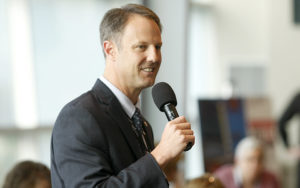
UNeMed President and CEO, Michael Dixon, PhD
UNeMed will collaborate with the University of Nebraska at Omaha on a third initiative: UNeTecH. It will be a support structure for biomedical and high-tech inventions that will bring together expertise and resources to build and develop innovative technologies.
“We’re going to break down barriers,” Dixon said.
The final planned initiative is a next-generation approach to education with highly sophisticated simulation and training facilities. Called iEXCEL, Dixon said the program “is going to fundamentally change the way medical education occurs.”
Dixon also recognized board chairman Don Leuenberger and his 24 years of service—a fixture at UNeMed since its founding in 1991, even playing a role in its creation. When UNeMed was created there weren’t many universities with their own technology transfer offices, but Leuenberger immediately saw the value in protecting and developing UNMC’s research innovations, Dixon said.
“Don had the foresight to say we need a structure for this,” Dixon told the gathering.

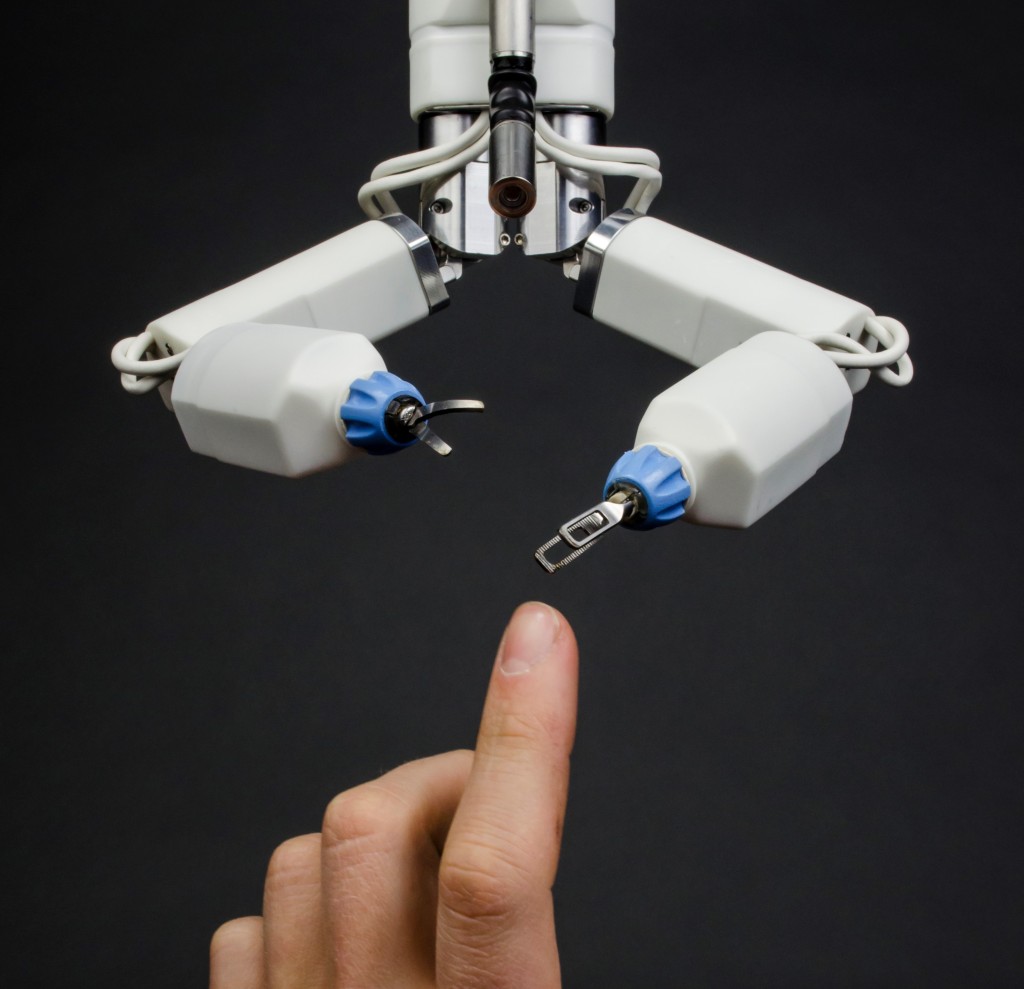
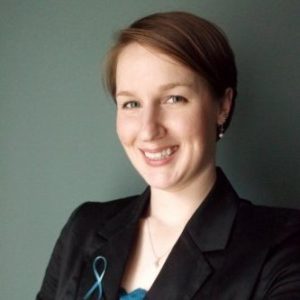 Some of the most influential experiences in life are those that stretch your limits of understanding and familiarity. Yet, the uncomfortable hardships that accompany those experiences are less than desirable.
Some of the most influential experiences in life are those that stretch your limits of understanding and familiarity. Yet, the uncomfortable hardships that accompany those experiences are less than desirable.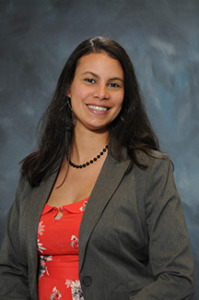 OMAHA, Nebraska (June 29, 2015)—Longtime postdoc and licensing associate Agnes Lenagh, PhD, was promoted to a permanent position at UNeMed as a licensing specialist, UNeMed announced today.
OMAHA, Nebraska (June 29, 2015)—Longtime postdoc and licensing associate Agnes Lenagh, PhD, was promoted to a permanent position at UNeMed as a licensing specialist, UNeMed announced today.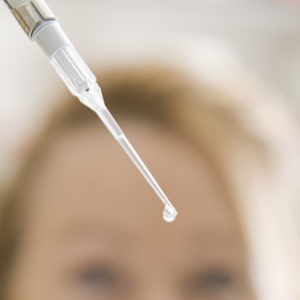 I’ve been rubbernecking the tech transfer equivalent of one of those mysterious single-car crashes that defies explanation.
I’ve been rubbernecking the tech transfer equivalent of one of those mysterious single-car crashes that defies explanation.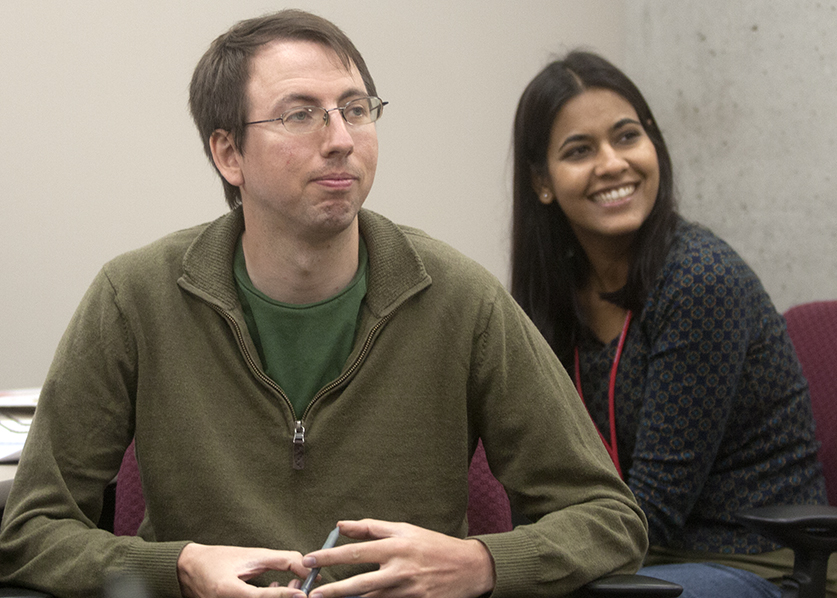
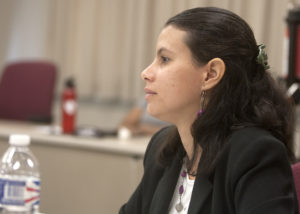
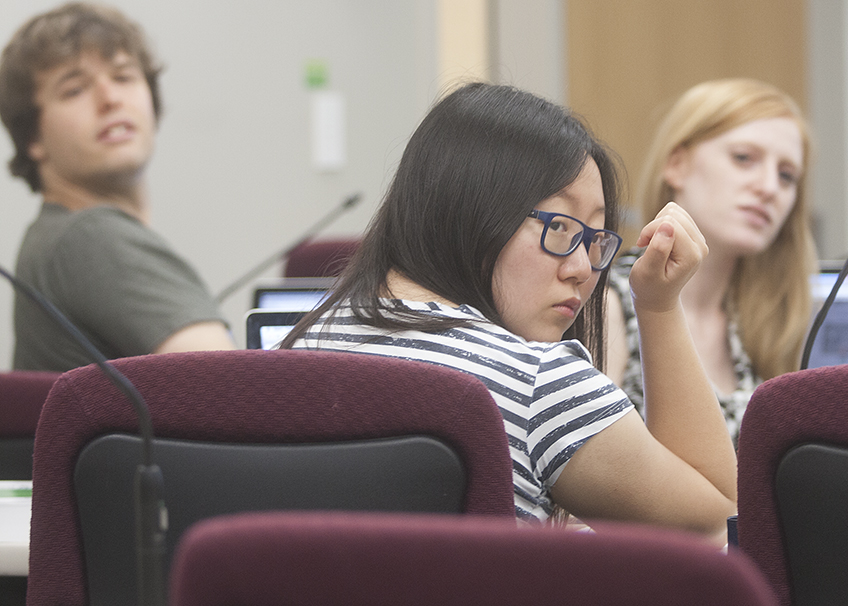
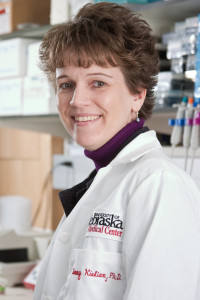 A professor in the Department of Pathology and Microbiology at the University of Nebraska Medical Center,
A professor in the Department of Pathology and Microbiology at the University of Nebraska Medical Center, 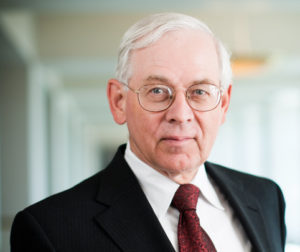
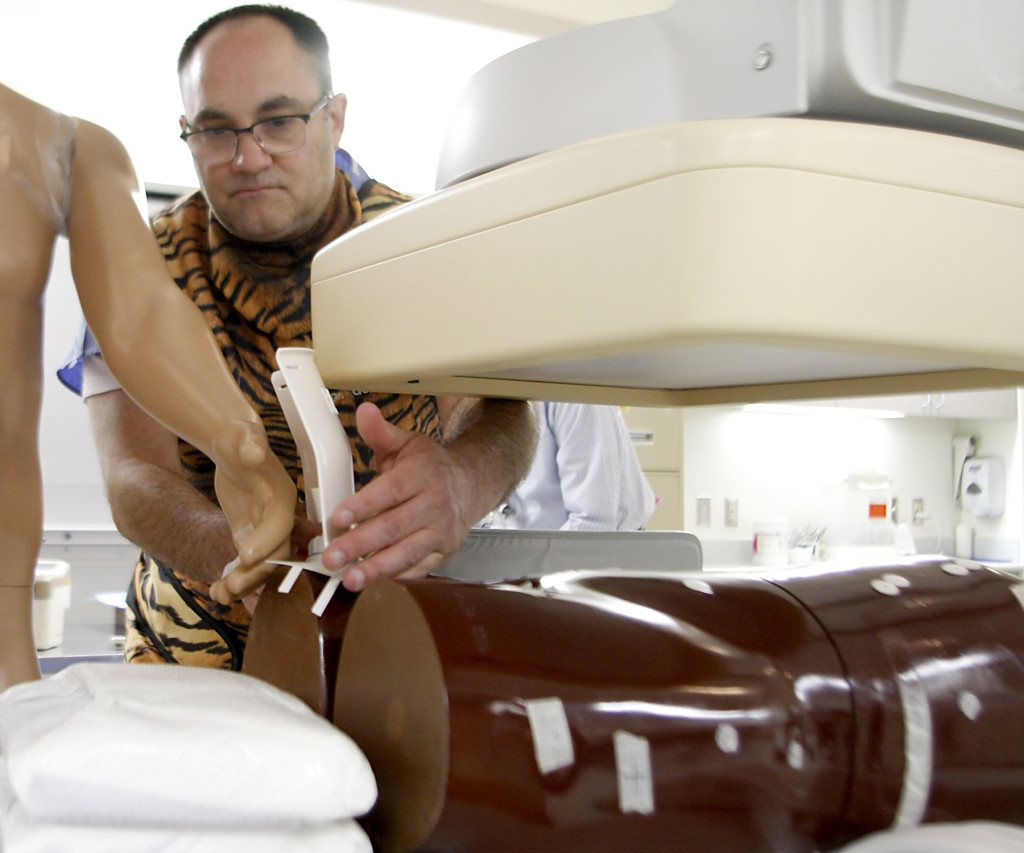
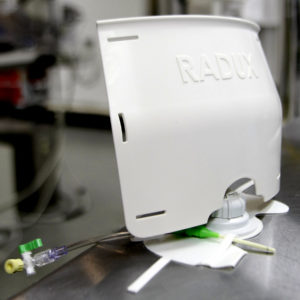
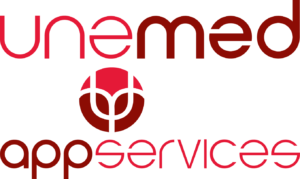 OMAHA, Neb. (May 12, 2015)—Faculty, students and staff working on or thinking about developing a new smartphone or tablet application can find the help they need at UNeMed, the technology transfer and commercialization office for the University of Nebraska Medical Center.
OMAHA, Neb. (May 12, 2015)—Faculty, students and staff working on or thinking about developing a new smartphone or tablet application can find the help they need at UNeMed, the technology transfer and commercialization office for the University of Nebraska Medical Center.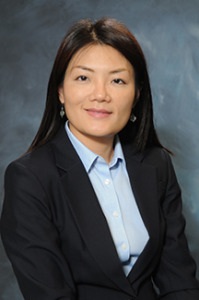 OMAHA, Neb. (May 11, 2015)—UNeMed technology development specialist, Qian Zhang, PhD, recently passed the United States Patent and Trademark Office’s patent bar exam and is now a registered patent agent.
OMAHA, Neb. (May 11, 2015)—UNeMed technology development specialist, Qian Zhang, PhD, recently passed the United States Patent and Trademark Office’s patent bar exam and is now a registered patent agent.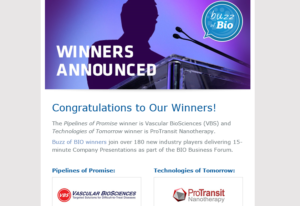
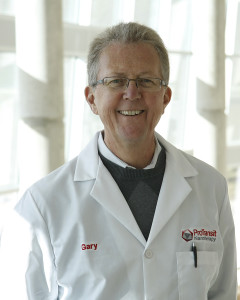
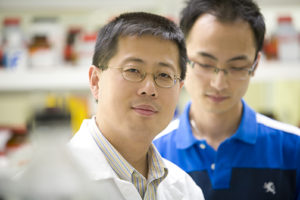 Making smarter drugs is certainly possible—if you have about a decade to kill and a few hundred million of spare change lying around. But an intelligent and skilled researcher could save a lot of time, energy and increasingly rare grant funding by looking for ways to improve existing drugs.
Making smarter drugs is certainly possible—if you have about a decade to kill and a few hundred million of spare change lying around. But an intelligent and skilled researcher could save a lot of time, energy and increasingly rare grant funding by looking for ways to improve existing drugs.
